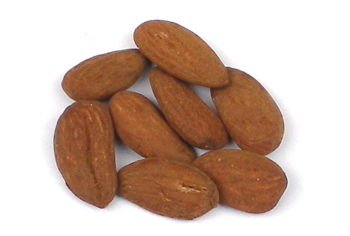
Updated July 2016
California-grown raw almonds are no longer raw, following enactment of a federal rule in September 2007. The USDA has mandated that raw almonds are to be sanitized using treatment processes that the industry generously describes as “pasteurization.”
The rule requires treatment of raw almonds with either a toxic fumigant classified as a possible carcinogen (propylene oxide) or heated with steam. In July 2016 radio frequency technology was approved as a pasteurization technique as well. The scheme has imposed significant financial burdens on small-scale and organic growers, lacks scientific justification, has damaged domestic almond markets, and does not address the unsustainable methods used on the industrial-scale almond orchards where the only two documented Salmonella outbreaks have occurred. And the treated almonds can still be deceptively labeled as “raw!”
There are three exceptions to the raw almond pasteurization mandate:
1. Exports of raw almonds to foreign countries (excluding Canada and Mexico) do not have to be pasteurized.
2. Farmers can sell untreated raw almonds, in maximum lot sizes of 100 pounds, directly to consumers from their farmsteads or at a farmers market.
3. Imports of raw almonds are not required to be treated before sale in the U.S.
Unsuccessful Legal Challenge
A lawsuit seeking to overturn the almond pasteurization rule was filed on Sept. 9, 2008 in the Washington, D.C. federal court. Fifteen almond farmers and handlers were plaintiffs in the complaint (view the news release announcing the lawsuit). Ultimately, and after several years, the lawsuit failed.
Organic producers have never been implicated in any of the past salmonella problems associated with almonds. Organic growers have their own set of mandatory protocols and best management practices that are employed in their orchards that substantially lower the salmonella contamination risk.
An exemption from the almond treatment mandate for organic growers would greatly diminish the harm that is being caused to these farmers who are losing tens of thousands of dollars in lost sales to imported raw almonds which are not required to invoke a pasteurization treatment.

